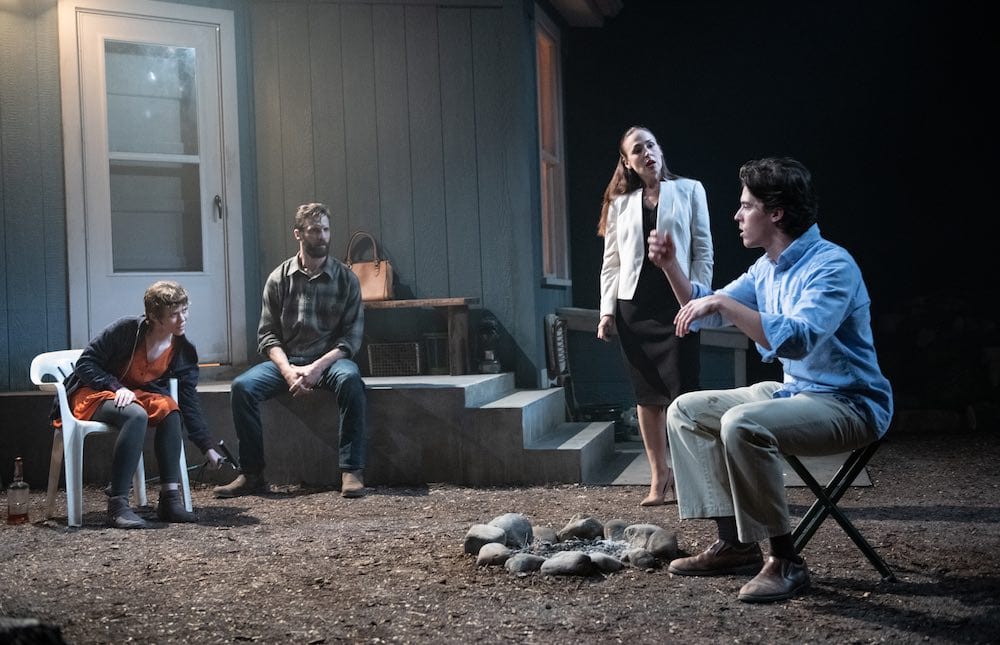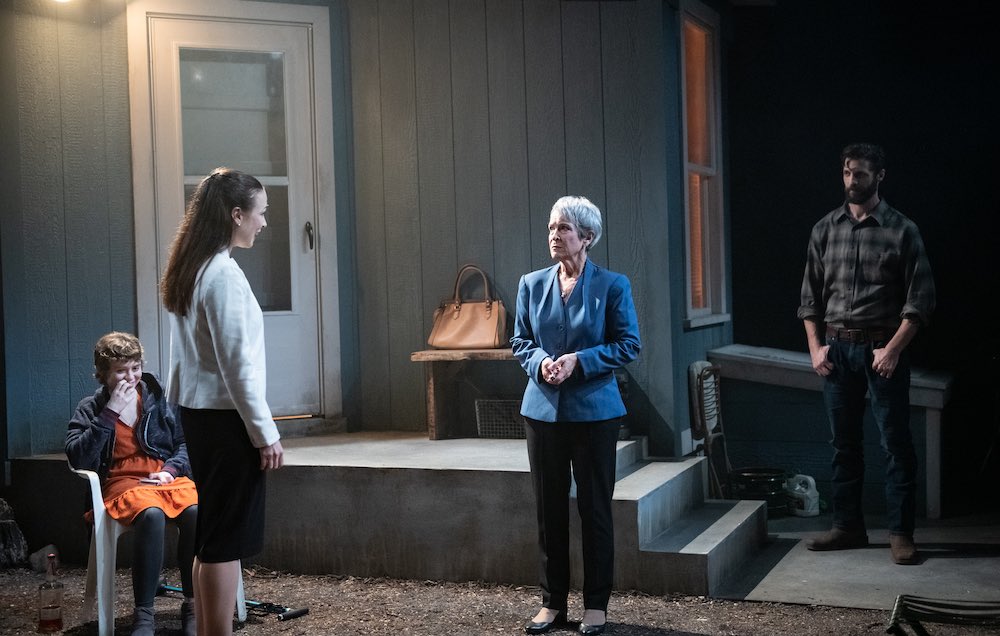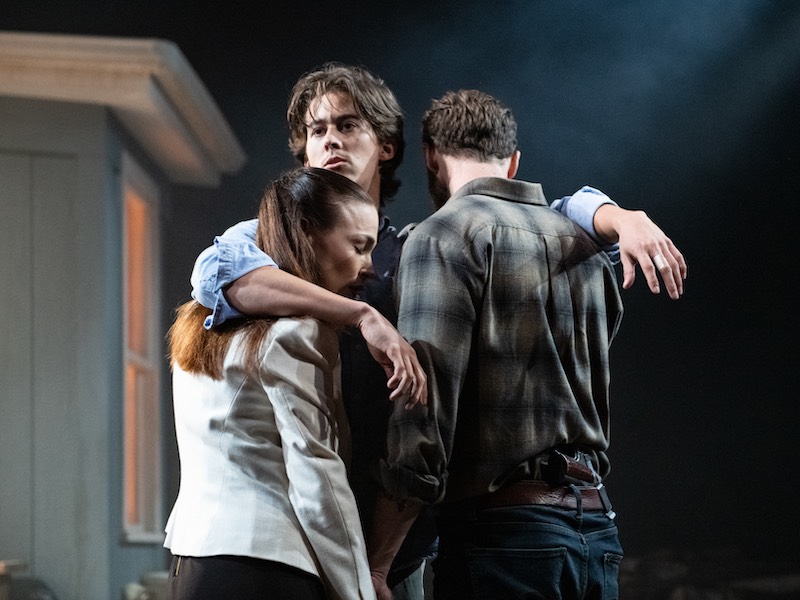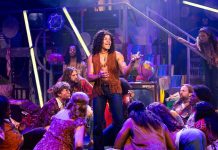There’s a lot of mental shrapnel flying from brain to brain in Heroes of the Fourth Turning, Will Arbery’s breathtaking late-night bull session just opened at Studio Theatre. Arbery’s five fascinating characters all share, in addition to their Catholic faith and conservative politics, a connection to an echo-chamber Christian college out in the boonies of Wyoming. For two-plus totally engrossing hours, we get to eavesdrop on their epic conversations, their contradictions and counterpoints, their discursive head trips, their philosophical arias — and the experience is mind-blowing. Because we get to hear how they think.

If there’s a point to this verbal torrent of a play, it’s that in any encounter with people who are unlike ourselves — such as devout red state believers might seem to probably liberal theatergoers in blue DC — paying attention to how others think is more important than purporting to feel what they feel.
This insight may come as a shock to the system, particularly in the woke world of local theater, where empathy is extolled as the essence of social justice. “Liberals are empathy addicts,” scoffs Teresa (Laura C. Harris), a tough-minded former student, one of four friends who have gathered to celebrate the appointment of her esteemed mentor, Gina (Naomi Jacobson), to the presidency of Transfiguration College.
TERESA: Empathy is empty. Arendt says we don’t need to feel what someone else is feeling — first of all that’s impossible, second of all it’s self-righteous and breeds complacency, third of all it’s irresponsible and dangerous. Feel bad for someone and suddenly you’re erasing the boundaries of your own conscience, suddenly you’re living under the tyranny of their desires. We need to know how to think how they’re thinking. From a distance.
As the alcohol-fueled congratulation party winds down near midnight, they hang out in an unprepossessing backyard designed in wood tones by Yu Shibagaki and lit in eerie moonlight by Amith Chandrashaker. In the beginning, there are faint wind chimes, but be not lulled; Sinan Refik Zafar’s sound design will soon jolt you out of your seat.
We first meet a frail, chronically ill Emily (Sophia Lillis), Gina’s daughter, in a sweet scene with the outdoorsy ex-Marine sharpshooter Justin (Gregory Connors), whose house this is and who bears a cross tat on his forearm. There is a touching tenderness between them.
We next meet a hyper and emotionally unraveling Kevin (Louis Reyes McWilliams), whisky bottle in hand, whose drunken repressed longing for a girlfriend takes on religious fervor. He is crestfallen by Teresa’s stinging takedown of him (she calls him, among other things, a soy boy). Later in the play, the prickly professorial Gina will arrive and take down the chilly Teresa, who will also be crushed.

As dramatic and intriguing as such inter-character afflictions, affections, and conflicts are (the foregoing was but a sketch), what really commands the stage are their brainy and sometimes rambling quests for meaning, as much in the godless political arena as in God’s universe. It is as if their deity validates their righteous being alongside their right-wing views. And vice versa.
The topicality of their talk fest is intense and extensive. Abortion, LGBT, whiteness… Donald Trump, Steve Bannon, Hannah Arendt… And through all the testimonies are intimations of a coming war, a time they’ll be heroes, a reckoning for the Lord.

Director Sivan Battat has made each moment in this rich ratiocination pitch-perfect, each stage picture a telling tableau. Plus their cast is superb. Each actor has at least one major monologue performed with a persuasive power that would be a showstopper were it a musical number. And Sophia Lillis’ cathartic delivery of Emily’s empathic soliloquy near the end had me gobsmacked.
In gathering these five Catholic conservatives around a firepit that would be a hazard to ignite, Arbery has succeeded in scripting what sounds like combustible truth. Not necessarily the truth, but their truth — and by god, it’s worth a listen.
Running Time: Two hours 10 minutes with no intermission.
EXTENDED: Heroes of the Fourth Turning plays through October 30, 2022, in the Mead Theatre at Studio Theatre, 1501 14th Street NW, Washington, DC. For tickets (starting at $75, with low-cost options and discounts available), go online or call the box office: 202-332-3300.
October 15 (2 PM): Sign interpreted performance
October 16 (2 PM): Audio described performance
The program for Heroes of the Fourth Turning is online here.
COVID Safety: Masks are required while in the performance space. Masks are strongly encouraged in all other areas of the building. Studio Theatre’s complete Health and Safety protocols are here.




